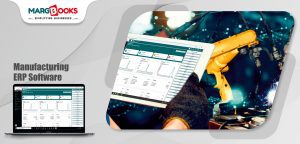If you’ve ever wondered how businesses manage to keep track of their sales, inventory, accounts, payroll, and everything else—all under one roof—the answer lies in three simple letters: ERP. But what is ERP software, really? And how does it help streamline business operations?
Let’s simplify it.
Understanding ERP Software
ERP (Enterprise Resource Planning) software is a type of tool that helps businesses manage and automate core functions like finance, HR, supply chain, sales, inventory, customer service, and more. Instead of using multiple disconnected applications, ERP brings everything together in a central system.
Imagine you own a business and use separate software for billing, inventory, HR, and accounting. Data needs to be manually updated and passed between departments. It’s time-consuming, prone to errors, and confusing. That’s where ERP software changes the game—it integrates all these functions into one unified platform.
Key Features of ERP Software
Let’s take a look at the major features of a good ERP system:
- Centralised Database: All your business data is stored in one place, making it easier to access and update in real-time.
- Automation: Reduces manual work by automating tasks like invoice generation, payroll calculation, and stock updates.
- Real-Time Reporting: Generates accurate reports on finances, sales, purchases, and more instantly.
- Customisation: Many ERP solutions allow tailoring according to industry needs—whether you’re in retail, pharma, manufacturing or distribution.
- Scalability: As your business grows, your ERP can grow with you—adding modules or users as needed.
How Does ERP Software Work?
ERP software works on a modular basis. Each module is responsible for a specific business function. These modules are interconnected, allowing data to flow freely between them.
Let’s say your sales team closes a deal using the Sales module. Automatically, the stock is reduced in the Inventory module, an invoice is created using the Billing Software module, and the data is updated in Accounts. No need for five people in five departments to update five different systems!
This seamless flow of data:
- Reduces delays
- Minimises errors
- Saves time and money
- Improves decision-making with real-time insights
Why Indian Businesses Are Moving to ERP Systems
In India, especially with the rise of MSMEs and startups, more businesses are realizing the value of digitizing operations. Managing your business with spreadsheets or isolated billing software may work in the beginning, but as complexity increases, so does the need for integration.
That’s where ERP software becomes more than a tool—it becomes your business backbone.
ERP Billing Software: A Smarter Way to Manage Invoicing
One of the most sought-after modules in any ERP system is the ERP billing software. It’s not just about creating GST-compliant invoices. A good billing module can:
- Track payments and outstanding dues
- Automate tax calculations
- Generate custom reports
- Send payment reminders
- Maintain client histories
And when this is part of a larger ERP system, your billing data feeds directly into accounting, inventory, and reporting modules. Talk about efficiency!
Enter: MargBooks – The Smart ERP for Indian Businesses
If you’re looking for a reliable, India-friendly ERP software, you’ve probably come across MargBooks. It’s a cloud-based ERP that’s been specially designed keeping Indian business needs in mind.
Here’s why businesses love using MargBooks:
- User-Friendly Interface: Even non-tech-savvy users can navigate it easily.
- Complete ERP Solution: From billing to inventory, GST filing to payroll—MargBooks has it all.
- Customizable Modules: Whether you’re a retailer, wholesaler, or distributor, you can choose the modules you need.
- GST-Ready Billing Software: It simplifies compliance and saves hours during tax filing.
- Anywhere Access: Being cloud-based, you can manage your business from your laptop or even your phone.
Benefits of Implementing ERP in Your Business
Still wondering whether to go for it? Here are some convincing reasons why investing in ERP is a smart move:
- Better Decision Making: Real-time reports help in analysing sales trends, profitability, and performance.
- Increased Efficiency: No more switching between systems—everything is connected.
- Cost Savings: Reduce overheads by streamlining operations and cutting down redundant work.
- Regulatory Compliance: Stay updated with GST rules and statutory filings automatically.
- Improved Customer Experience: Faster billing, accurate deliveries, and personalized service.
Final Thoughts
To sum it up, what is ERP software? It’s more than just a tool—it’s a complete business management solution. With features that integrate billing, inventory, accounts, payroll, and more, ERP software like MargBooks empowers Indian businesses to grow smartly and stay competitive in a digital world.
If you’re still managing everything manually or juggling between different software, now’s the time to explore ERP. The future belongs to businesses that are fast, agile, and digital—and ERP helps you get there.




